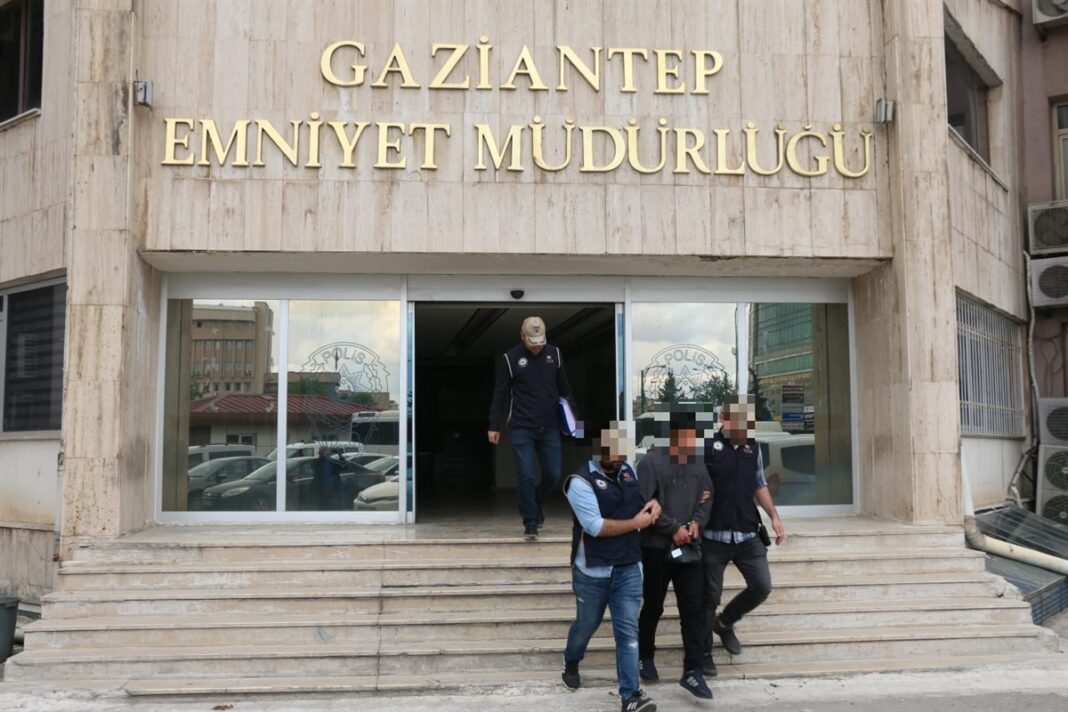The number of people, mostly students, detained this week as part of a sweeping operation targeting alleged members of the faith-based Gülen movement has risen to 320, with questions obtained by Turkish Minute that are being used in their interrogation showing that the detainees are being questioned over constitutionally protected and otherwise lawful activities.
Turkish police detained 208 people, most of them university students and recent graduates, on Tuesday as part of a broad operation targeting alleged members of the Gülen movement. The operation was based in the southeastern province of Gaziantep, but detentions took place across 47 provinces, Interior Minister Ali Yerlikaya announced on Tuesday. The number of detainees has risen to 320 with new detentions, according to a lawyer representing the detainees.
The detainees were taken to the Gaziantep Police Department for interrogation and were testifying to prosecutors on Thursday.
According to the leaked document, the detainees are being asked about their legal activities during their interrogation both by the police and the prosecutors, such as whether they attended certain high schools, universities or private tutoring centers; stayed in specific dormitories or shared apartments; possessed a driver’s license or passport; or participated in educational camps abroad.
Such activities, while lawful, have been used by Turkish judicial authorities as indicators of affiliation with the Gülen movement, which the Turkish government classifies as a terrorist organization.
Over the last decade Islamic scholar Fethullah Gülen, who died in October, and his movement, which in the past had been praised by the Turkish government for their activities in education and interreligious and intercultural dialogue, have faced various accusations from the government, including masterminding corruption investigations in 2013 and a coup attempt in July 2016.
The Turkish government labeled Gülen and his movement as “terrorists” in May 2016.
Gülen and his followers have strongly denied any involvement in the coup or any terrorist activity but have been the subject of a harsh crackdown for a decade, which intensified in the aftermath of the abortive putsch.
The police and prosecutors are also demanding detailed explanations about any international travel, including who funded their trips, who they traveled with and where they stayed.
One standard question in the file asks whether the detainee “attended overseas camps” organized by the Gülen movement and, if so, “which country you traveled to, who accompanied you and who welcomed you at the airport.”
Another question asks whether the detainee participated in summer camps in countries such as Bosnia, Albania, North Macedonia, Georgia or northern Iraq, trips that in many cases took place earlier and involved no known criminal activity.
Ömer Faruk Gergerlioğlu, a lawmaker from the pro-Kurdish Peoples’ Equality and Democracy Party (DEM Party) and a prominent human rights activist, criticized the nature of the detentions in a video he posted on X on Thursday, saying, “In this country, traveling abroad has become a crime! Going on a tourist trip has become a crime! Where are you trying to drive these young people, what are you trying to do?”
In another line of questioning, detainees are asked about their presence on social media, which messaging apps they have used (such as Signal or Jitsi) and with whom they communicated by using these apps, the names of their social media accounts, whether they had cryptocurrency wallets and if they ever transferred funds via digital platforms.
Questions also included whether they donated money under religious terms such as “zakat,” “infak” or “himmet,” practices rooted in Islamic tradition but now regularly cited as evidence of “terrorist financing” in investigations targeting Gülen followers.
In another question the detainees are asked whether any member or members of their family have been prosecuted on terrorism charges, while they were also asked about their previous workplaces and how long they worked there.
One question explicitly asks if the detainee wants to benefit from Article 221 of the Turkish Penal Code, the so-called “effective remorse” clause, which reduces sentences for those who confess and cooperate with the authorities.
Legal experts and rights groups say the scope of the questioning shows how Turkish authorities continue to treat peaceful, legal activity as acts of terrorism.
According to a statement from Justice Minister Yılmaz Tunç ahead of the eighth anniversary of the coup attempt last July, a total of 705,172 people have been investigated since the coup attempt on terrorism or coup-related charges due to their alleged links to the movement. Tunç said at the time that there were 13,251 people in prison in pretrial detention or convicted of terrorism in Gülen-linked trials.
These figures are thought to have increased over the past 10 months since the operations targeting Gülen followers continue unabated. Erdoğan and several government ministers said there would be no “slackening” in the fight against the movement following the cleric’s death at 83.
Turkey is a member of the Council of Europe and a signatory to the European Convention on Human Rights. However, international watchdogs have repeatedly warned that Ankara’s use of counterterrorism legislation violates basic legal safeguards and is being used to silence dissent and crush civil society.

